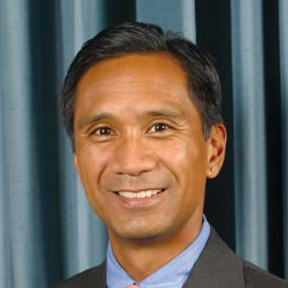Having declared that “the actions of Colonel Muammar Qadhafi, his government, and close associates, including extreme measures against the people of Libya, constitute an unusual and extraordinary threat to the national security and foreign policy of the United States,” President Obama has unleashed the U.S. military to conduct air strikes against targets in Libya.
Following in the footsteps of several of his predecessors, President Obama’s actions ignore the Constitution, which clearly states that it is the power of Congress, not the executive branch, “to declare war.” Indeed, the president is ignoring his own December 2007 words as a senator: “The president does not have power under the Constitution to unilaterally authorize a military attack in a situation that does not involve stopping an actual or imminent threat to the nation.”
Constitutionality and selective memory aside, the president was wrong to order the attacks on Libya for three reasons.
First, it’s not clear who’s in charge of Operation Odyssey Dawn, as the anti-Qadhafi assault is being called. The president has said that U.S. forces will only play a supporting role in the military action against Libya. Yet it’s clear that the opening volley of more than 120 Tomahawk cruise missiles, aimed at Libya’s radar detectors and surface-to-air missile sites, was largely a U.S. operation.
But it’s still unclear who’s in charge. According to the Pentagon, the U.S. military is in the lead. The French, however, appear to be doing their own thing. Some want NATO calling the shots. Others call for a different command structure. Such questions need to be resolved before U.S. troops are committed to action, not along the way.
Second, what’s the objective? A missile strike on day two of Operation Odyssey Dawn destroyed a building in Tripoli that was reportedly one of Qadhafi’s command centers. But U.S. and British officials were quick to claim that Qadhafi was not the intended target—the air strikes were aimed at his troops and air defense systems.
President Obama says U.S. military objectives are limited: setting up and enforcing a no-fly zone. Yet, at the same time, the president insists that Qadhafi “must leave.”
But you can’t have it both ways. Certainly, we’re not launching missiles and enforcing a no-fly zone with the intention of leaving Qadhafi in power—or are we? That, after all, was exactly the result of more than a decade of no-fly zones over Iraq when Saddam Hussein was in power.
Third—and most importantly—even if the previous two questions are properly addressed, they would be trumped by the fact that U.S. national security is not at stake in Libya.
To be sure, Muammar Qadhafi is hardly a model citizen and it’s hard to argue that Libya wouldn’t be better off without him. But he doesn’t pose a threat to the United States—which should be the one and only criterion for using U.S. military force.
We need to learn from our experience in Iraq, not repeat the same mistake. If getting rid of tyrants and dictators who oppress their people becomes the criterion for using U.S. military force, who do we target next: China? The so-called Democratic Republic of Congo? Eritrea? Iran? Kyrgyzstan? Venezuela? Zimbabwe?
America would be wise to remember the so-called Pottery Barn rule that former Secretary of State (and before that Chairman of the Joint Chiefs of Staff) Colin Powell warned about prior to invading Iraq: “You break it, you own it.”
With Iraq and Afghanistan already having cost America more than $1 trillion and thousands of lives, the United States can hardly afford to take ownership of Libya.







